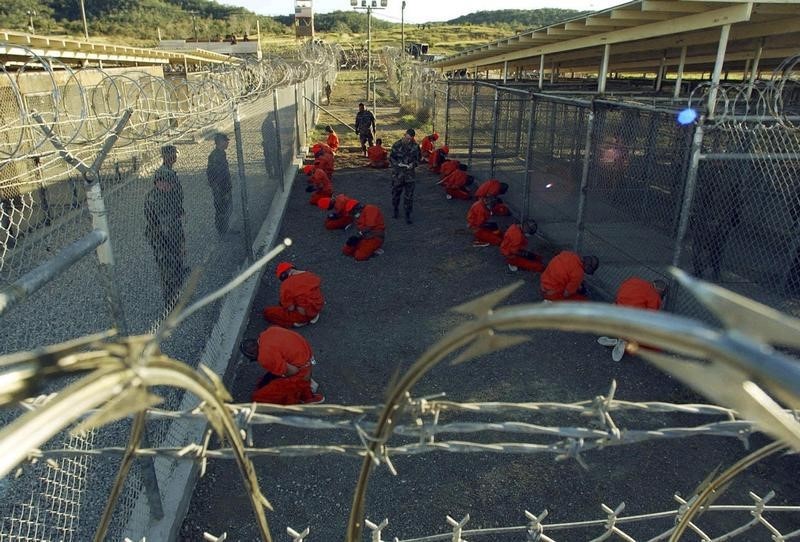By Patricia Zengerle
WASHINGTON (Reuters) - The House of Representatives overwhelmingly passed the National Defense Authorization Act on Thursday, including $5 billion in spending cuts not contained in a version of the bill vetoed by President Barack Obama last month.
The vote was 370-58 for the measure, which authorizes more than $600 billion in defense spending. It had strong support from both Republicans and Obama's fellow Democrats, even though it still contains provisions making it difficult to close the detention center at Guantanamo Bay, Cuba.
The Senate could pass the revised bill as soon as next week, despite calls for changes in its Guantanamo provisions. These include restrictions on transferring detainees to the United States from the naval base, which still houses 112 foreign terrorism suspects.
Congressional aides said they expect Obama will sign the revised bill, even with the Guantanamo restrictions, but the White House has not made his intentions clear. Obama, who has vowed to close the prison before leaving office in 2017, said the Guantanamo language was one reason he vetoed the bill, known as the NDAA.
The White House has not issued another veto threat, but a spokesman said Obama has not ruled out an executive order to close the facility.
That suggestion angered some Republicans in Congress, many of whom consider Guantanamo an essential tool in efforts to combat terrorism. "Why do we even have a Congress if the president can issue an executive order on anything?" Republican Senator Pat Roberts fumed at a news conference.
U.S. officials have considered transferring Guantanamo detainees to a facility in Kansas, Roberts' home state. Republican senators Tim Scott of South Carolina and Cory Gardner of Colorado, states that are also potential targets for transfers, also strongly opposed the plan.
On the other side, 28 retired senior U.S. military officers signed a letter to Obama expressing support for closing Guantanamo, saying some concerns of those who oppose bringing detainees to the United States were unfounded.
"Our prisons house hundreds of convicted terrorists. None has ever escaped," they wrote.
The spending cuts contained in the revised NDAA reflect a budget agreement between the administration and the Republican-controlled Congress addressing Obama's main concern about the bill, using war funds to let the Pentagon avoid mandatory spending cuts.

Senate Democrats voted Thursday to block another defense measure, the fiscal 2016 appropriations bill, for a third time, part of a broader fight with Republicans over spending policy.